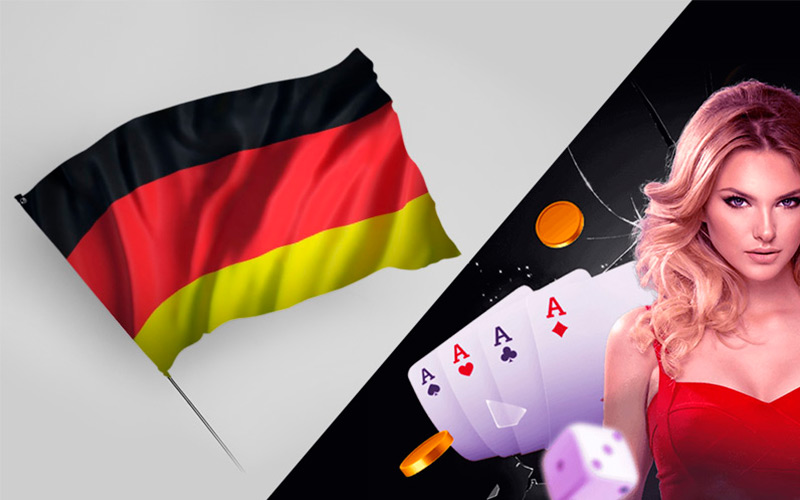Central Europe Is the Next Big Thing in iGaming: Destination Analysis
Freshly regulated, economically active, and full of untapped potential — this is all about the region that is quickly becoming one of the hottest arenas for online gambling investments. Renowned hubs like Germany and rising stars such as Poland and Switzerland present ample opportunities to navigate local licensing and compliance. If you are looking forward to expanding the activity or setting up a new startup, this region is one you do not want to sleep on.

Order the creation of a brand-new gambling site under turnkey or White Label conditions with 2WinPower. Get in touch with our client support and find out more about the possibility of entering these regions with a new or upgraded project.
Germany

The country stands tall as Central Europe’s heavyweight in iGaming. The projected online gambling revenues reached €4.70 billion in 2023 and are climbing toward €6.38 billion by 2028. While it is a lucrative market, it is also one of the most complex to enter.
The fundamental shift came in 2021 with the introduction of the German State Treaty on Gambling (GlüNeuRStv). For the first time, the country opened the doors to online slots and poker to join established sports betting. Table games remain partially restricted and can either be state-run or privately licensed, depending on the region.
As of January 1, 2023, the registration and enforcement were centralised under the Gemeinsamen Glücksspielbehörde der Länder (GGL), a new regulator tasked with compliance simplification and nationwide permit issuance.
Essentials for operators to consider:
- Licences are available for online poker, sports betting, and virtual slot machines.
- Table game rules vary by state, and not all allow private licensing yet.
- A 5.3% turnover tax applies to online slot and poker stakes.
- Strict limits on player bets, bonuses, and deposit caps are part of the regulatory package.
- Almost 75% of the market is still operating through unlicensed platforms due to restrictive laws.
A recent study by the University of Leipzig highlighted a major issue that punters continue to turn to black market sites, primarily due to less strict bonus limits and better accessibility. This has triggered calls from industry groups like the DOCV and DSWV to modernise the system with better taxation models, improved flexibility, and more user-friendly rules.
Germany is a goldmine of modern iGaming. However, platform owners need patience, proper legal support, and a realistic plan to make it work. With a comprehensive approach to the gambling project buildup and adequate support, the start of an iGaming platform becomes streamlined and revenue-filled.
Switzerland
The country took a significant leap in 2019 with the introduction of the Swiss Gambling Act that modernised its entire approach to offline and online participation. The law created a structured licensing system. However, there was a catch as only existing Swiss land-based halls and their tech partners could legally offer online gambling.
Regulation is split between two authorities:
- the Swiss Federal Gaming Board (ESBK) (casinos and digital platforms);
- Comlot (lotteries and sports betting).
Foreign operators without local partnerships are locked out of the market. What is more, they are also handcuffed by site blocking to guide traffic to licensed Swiss platforms.
Despite the access limitations, the market holds strong appeal. Online gambling is entirely legal as long as the owner has a Swiss licence, and taxation is based on gross gaming revenue, with rates varying by canton. The regulatory model is also known for its strict user protection measures and commitment to dealing with problem participation.
A big shake-up happened in January 2025, when the number of licensed ground halls jumped from 21 to 43 after a fresh round of registration approvals. Of those, 12 venues have been cleared for online operations, which created a new room for tech collaborations and market expansion.
As operators want to partner locally and meet strict requirements, Switzerland offers a premium, stable, and highly regulated space with serious long-term potential.
Liechtenstein
For now, the country remains offline when it comes to iGaming. The Principality does not issue licences for online gambling operations, and there is no regulated digital market in place. However, land-based halls have been active since 2017, and they have done surprisingly well. The combined revenue is close to €50 million in their first full year.
Gambling in Liechtenstein is governed by the Law on Games of Chance and Casinos (Spielbankengesetz). The officiality outlines licensing rules and emphasises fairness, transparency, and social responsibility. The country’s physical halls mostly thrive on visitors from neighbouring Switzerland, Austria, and Germany. This is thanks to the advantage of cross-border traffic and a compact but steady user base.
Interestingly, Liechtenstein does have a piece of iGaming history. Back in 1995, it became home to Interlotto, later known as PLUS Lotto. This is the first internet lottery in the world, operated under an official licence. Though the platform closed in 2011, it laid the groundwork for what could one day be a return to digital gambling in case the country decides to revisit its virtual stance.
For now, platform owners observe this market with suspension. The infrastructure and interest are there, but official regulations for digital play are still on pause.
Austria
The country’s online casino and lottery space is currently locked under a state monopoly. This will stay that way until at least September 2027. The exclusive rights are held by Austrian Lotteries and its joint venture with Casinos Austria. Although the tendering process behind it has faced plenty of criticism, nothing is expected to change until the existing licences expire.
That said, there is still some room for operators. This is particularly appealing in the online betting market, which remains open. Licences are issued at the state level, not federally, which creates a patchwork of rules. Most states limit betting permits to sports, but a few allow wagers on political or cultural events. Live wagering is banned in certain regions, which adds another layer of complexity.
Interestingly, even though the laws technically apply only to brick-and-mortar betting shops, registered managers are often allowed to extend their services online. This is a legal grey area that has become standard practice. The cost of a licence varies by state. Operators are subject to a 2% turnover tax, plus regional fees that depend on where they are registered.
Prospects imply that change might be on the horizon. Austria’s Ministry of Finance has expressed interest in adapting the current system, inspired by Germany. The proposed reforms include higher gambling taxes and the creation of a centralised regulatory authority to oversee registration and enforcement. For now, the market is a split reality. It is tight at the top, but still open for agile sportsbook operators to navigate the decentralised structure.
Hungary
The country made a significant move in January 2023, when it officially opened its gambling market to private operators. The change came after the state-run sports betting monopoly held by Szerencsejáték was deemed unlawful by the European Court of Justice back in 2017. This pushed the government to create a new licensing regime under the Supervisory Authority for Regulatory Affairs (SZTFH).
At the same time, entering the Hungarian market is no easy feat. Applicants must have five years of licensed online gambling experience within the European Economic Area and a clean history. This implies no unlicensed operations in the five years prior.
On top of that, the cost of entry is steep:
- a €26,000 application fee;
- a registered capital of €2.5 million;
- a license fee of €1,500.
So far, no foreign operator has been granted a licence. The only approved platform is the former monopoly’s site, Tippmixpro.hu. Three local land-based casinos are now authorised to engage in online activity as well. It is clear that while the law technically permits outside involvement, the barrier to entry remains high and heavily tilted toward domestic businesses.
Still, the regulatory structure is evolving. A January 2023 amendment now allows punters to hold multiple gaming accounts instead of being limited to one. This is a small but telling step toward modernising user freedom. For now, Hungary’s market remains tightly guarded, but for well-capitalised operators with patience and a solid legal team, it is a destination to watch.
Slovakia
The country’s digital gambling scene has seen significant growth in recent years. However, the outdated laws left it exposed to unlicensed operators and weak user protection. The previous 2005 legislation never fully adapted to digital gaming and allowed offshore sites to thrive without proper oversight.
That changed with the new act, which came into force on January 1, 2023. The updated framework finally opened the market to licensed private managers and ended the state monopoly with a straightforward registration process. National permits are now issued for different verticals, and entrepreneurs must meet local infrastructure requirements to qualify.
A major part of the reform was the Office for the Regulation of Gambling, an independent body that oversees permit provision, monitors compliance, and keeps a public blocklist of black sites. The office also enforces strict advertising rules. This includes time-based ad restrictions, required responsible adherence messages, and a total ban on targeting minors or vulnerable groups.
While the market liberalisation is a step in the right direction, operators still face hurdles. The registration process includes multiple layers, and the ad restrictions could limit promotional opportunities. Success in Slovakia will depend heavily on how flexibly and fairly the new rules are enforced.
The country has solid potential for those who can navigate its evolving system. It is not a quick win, but as operators want to expand in Central Europe with long-term goals, it is definitely a jurisdiction worth exploring.
Czech Republic

Czechia has had a fully regulated gaming arena since the Gambling Act came into effect in 2017. It has brought structure and transparency to the ground and virtual sectors. From the beginning, it introduced strict licensing requirements and a differentiated tax model. 23% on GGR is imposed on sports betting and lotteries, and 35% is applied to RNG-based casino activities.
By 2020, the tax structure was adjusted again: lotteries, slots, and bingo operators were aligned under a 30% GGR deduction, and fixed-odds wagering saw its rate increased to 25%. These changes were influenced by public health initiatives to address gambling-related harm and addiction risks. In 2023, the Czech government proposed a wave of updates to tighten and modernise regulation even more.
These refinements target punters’ safety, illegal operations, and market diversification:
- Player protection upgrades. A mandatory “panic button” will allow users to self-exclude for 48 hours and get in the register. This list also includes individuals under criminal investigation.
- Live dealer games. The market is expanding to include real croupier content. This broke out of the previous RNG-only framework.
- Illegal operators under the spotlight. Any platform accessible in the Czech Republic is considered active, even if it does not explicitly target the market. Affiliates must now stick to local promotions of licensed brands only.
- Deposit reforms. A new tiered financial system will be applied to permit applicants. The required deposit will depend on game type, user volume, and overall risk level.
The Czech Republic remains one of Central Europe’s most structured and reliable markets. At the same time, compliance means following the steady regulatory evolution. Operators who want to enter or expand here need to be proactive, flexible, and ready for continual updates.
Poland
The country is easily one of Central Europe’s most intriguing zones. The sector was regulated by the 2009 Act on Gambling Games. In 2017, it underwent a major reform when the Ministry of Finance was granted the power to blacklist unlicensed websites. This helped slow down the illegal market’s dominance, and the official sector grew to nearly €2 billion.
Still, the framework remains among the strictest in Europe. Licensed private operators are limited to sports and horse racing betting only. No poker, no slots, no other casino activities are allowed. Those verticals remain under the state’s grip through Totalizator Sportowy, which runs Total Casino, the country’s sole legal platform.
The government has taken gambling harm seriously, and it shows. Thanks to regulatory efforts, the number of problem participants has reportedly dropped by nearly 20% over the past five years. However, the heavy-handed restrictions have also created one of Europe’s most active grey markets.
The online betting alone is valued at €1.6 billion, and while there is no cap on the number of licences, getting one is not exactly smooth sailing. A six-year permit currently costs around €100,000, and operators must navigate 12% turnover taxes, except for animal-based bets at a lower 2.5%.
Despite efforts to clamp down, offshore jurisdictions still actively serve Polish users. In 2021, the grey revenue total was estimated at over €6.53 billion. Licensed operators, who play by the rules, have been growing increasingly frustrated with the uneven playing field.
If Poland is to unlock its full iGaming potential, industry voices agree that the laws need to ease up. Until then, it remains a high-barrier, high-reward environment for those willing to stick it out.
The Main Things about Central Europe’s iGaming Potential
The region is no longer a hidden gem but a diverse and evolving gambling area full of opportunities and regulatory challenges. Some markets are wide open for innovation, while others remain cautiously controlled or are only just beginning to modernise.
For operators with long-term vision and legal savvy, this region holds serious promise:
- Germany offers massive revenue potential, but entrepreneurs must navigate strict rules, high taxes, and a slow-moving regulatory structure.
- Switzerland allows online casinos only through official land-based operators, but its premium user base and 2025 licensing expansion signal new opportunities.
- Liechtenstein has no online gambling framework yet, though its ground scene shows cross-border appeal and possible future expansion.
- Austria remains a monopoly for iGaming content, but its decentralised betting market is accessible at the state level.
- Hungary has restructured its system, but remains closed to foreign operators despite a new licensing law on paper.
- Slovakia has liberalised its gambling acts, though registration complexity and advertising restrictions require extra diligence.
- The Czech Republic is highly regulated and tax-heavy, but continues to modernise with live dealer games and improved user protection.
- Poland restricts private operators to betting only, while the state controls iGaming.
Buy all the necessary software to upgrade your projects or order turnkey or White Label development plans for a brand-new platform elaboration.
- e-mail: info@2wpower.com
- Telegram: @Win2Power
Please be careful! We have noticed that scammers are using our contact details to deceive customers.
For security reasons, please use only the contact information provided on the page https://2wpower.com/en/feedback
Our company is not responsible for the actions of fraudsters.












 DEMO
DEMO 



